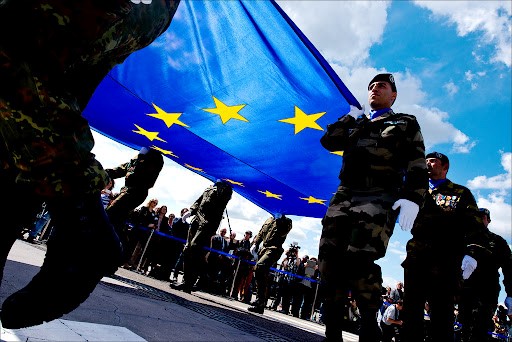EU stands for European Union but it should be called Eternally Unsure because they can’t seem to agree on anything. In the latest episode of EU’s Decision Paralysis, we take a look at how the new Proposed EU Army is dead even before its birth.
The European Commission’s recent proposition to centralize defence procurement within the European Union is a total bust and has caused significant concerns among member states, even those traditionally supportive of increased integration. The plan, aimed at consolidating the EU’s military spending, suggests that from 2030, EU countries would be encouraged to acquire 40% of their military hardware through a collective procurement strategy. This strategy, unveiled on Tuesday, envisages partial financing through the utilization of assets frozen in response to Russian activities.
Join us on Telegram: https://t.me/tfiglobal
This development comes amid growing apprehension regarding the European Union’s military readiness, particularly in light of Russia’s crushing of Ukraine and the potential for a more isolationist stance from the United States under a Trump administration. The initiative not only seeks to bolster the EU’s defence capabilities but also extends honorary participation to Ukraine, allowing it to procure weaponry alongside EU nations.
However, the feasibility of the European Commission effectively orchestrating such a comprehensive and unified defence strategy has been questioned. Even arms manufacturers like Rheinmetall are frustrated. Armin Papperger, CEO of Rheinmetall, expressed frustration over the prolonged discussions within the EU on defence matters without tangible action, casting doubt on the Commission’s capacity to manage collective defence initiatives efficiently. Armin wants his money fast but looks like Ursula and the big guy want bigger cuts.
Read More: Ursula is turning the EU into a MADDER NATO
So, while the European Commission’s ambitious plans for a more centralized and collaborative defence procurement process underscore a strategic response to evolving security threats, skepticism about the Commission’s capability to lead such an initiative underscores broader challenges facing EU integration efforts in the field of defence and security.
The prospect of establishing a unified European Union army appears increasingly implausible, as skepticism and outright opposition emerge from various quarters within the EU. German Green Member of the European Parliament (MEP) Hannah Neumann critically addressed the notion, highlighting the incongruity of advocating for a European army at a time when the EU is struggling to produce sufficient ammunition for its own defense and to support its allies.
This sentiment is compounded by reports of Germany’s resistance to proposed EU “defence bonds,” intended to fund defense expenditures, signaling a lack of consensus among member states.
Austrian MEP Harald Vilimsky, representing the national-conservative Freedom Party of Austria (FPÖ), voiced concerns over the implications of such centralized military plans for countries with a tradition of neutrality. Vilimsky warned against the rapid establishment of an EU army, defence minister, and central headquarters, suggesting that these developments could undermine national sovereignty and are contentious, especially when considered under NATO’s broader security umbrella.
Despite these challenges, the concept of a European army remains a long-standing ambition for figures like French President Emmanuel Macron and other advocates of deeper EU integration. The ongoing conflict in Ukraine has injected new urgency into this debate, prompting the EU to initiate joint procurement strategies for ammunition. This move aims to address the critical shortage of arms and ammunition facing Ukraine, as European military stockpiles dwindle. Yet, the ambitious vision for a cohesive EU military force faces significant hurdles, not least due to differing views on sovereignty, military autonomy, and fiscal responsibility among EU member states.
The European Union’s recent defense proposals, spearheaded by Internal Market Commissioner Thierry Breton, have sparked significant debate amidst a more aggressive stance towards Moscow by President Macron, including the controversial consideration of deploying European troops to Ukraine.
Read More: Ukraine is down to its LAST BRIGADE
This has elicited strong reactions from several EU member states, with both Germany and the Netherlands reportedly opposing the new defense initiatives. The EU’s assertive posture on the Ukraine crisis has further drawn criticism from countries such as Hungary and Slovakia, reflecting a broader discomfort with the prospect of military escalation. Additionally, Commission President Ursula von der Leyen has prioritized further militarization of the EU in her post-2024 election agenda.
Mark my words. The EU Army will never happen. And once Ukraine surrenders to Russia, the talks will fizzle out too. Yes Ukraine is very close to surrendering, it’s down to its last brigade.
